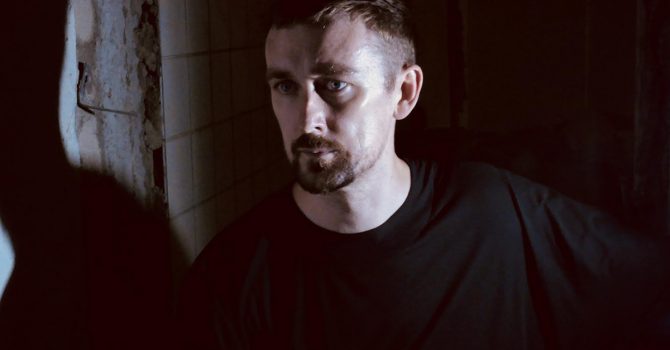Swarm Intelligence: „The more I learn, the higher I raise the bar for myself” – interview
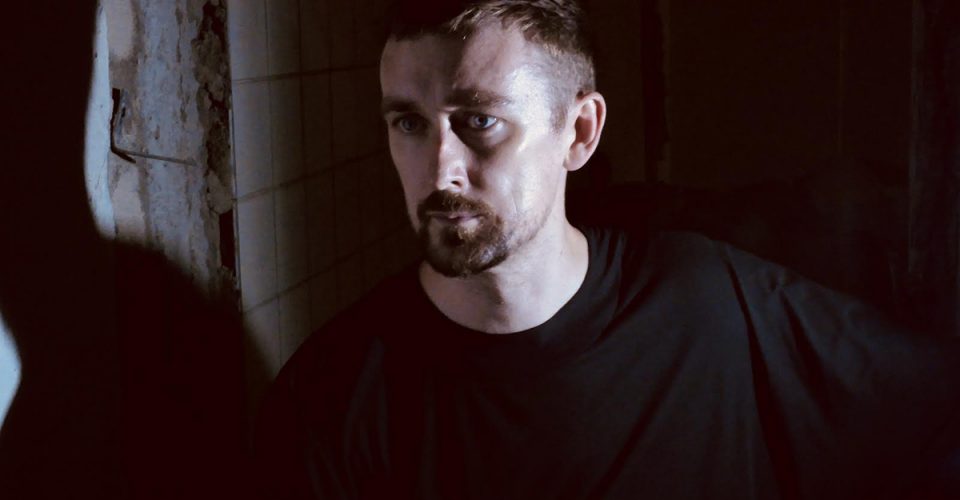
Irish by origin, he has been forming his musical identity in Berlin for 10 years. He is willing to talk about himself, his weaknesses and his experiences to date. He does not shy away from heavy topics, and conversations beyond the musical sphere are not alien to him. In an extensive interview, coinciding with the upcoming Lost In Ether party on Jasna 1 with his participation, Swarm Intelligence shared with us not only his past and present activities but also his thoughts on the climate crisis, the constant raising of the bar, reasons for going vegan, the influence of technology on creativity, appreciation of one's own achievements or the first EP on his own label. We wish you a pleasant read.
Read also: Sztuczna inteligencja irlandzkiego inżyniera. Swarm Intelligence po roku przerwy wraca do Polski
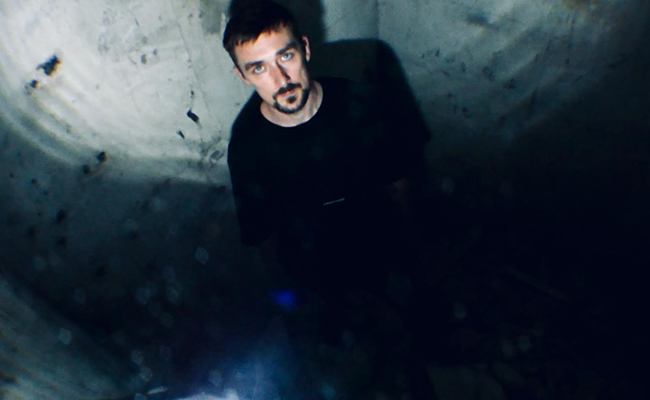
Swarm Intelligence. An Irish engineer in a world full of threats – interview
Damian Badziąg: As you well know, the scene in Ireland, despite its problems – let’s call it organizational (early end of events) – is alive, flourishing, growing. You, along with Sunil Sharpe or Tommy Holohan, are an example that even coming from the periphery of the techno scene you can make an international career. As you’ve already mentioned, nobody in your class at university (or high school) was interested in the music you liked. So how did you come to like „your music” and how did you expand your knowledge of production, DJing etc.? When did you start building your first setup?
Swarm Intelligence: I wouldn’t really call Ireland the periphery of the techno scene. I think there is a great appetite and talent for techno there, and many good artists and labels have come from the country over the years. You’re right though, the government’s view on the nightlife is very outdated and stifles a rich culture and job market that they don’t seem to understand or value. The result is that many talented and creative young people simply emigrate. It was certainly a big part of my reasoning to move abroad. Thankfully, the progress made by the Give Us the Night campaign, spearheaded by Sunil Sharpe gives reason for optimism. Reform is long overdue and seems to become more possible now thanks to their work.
It’s true that as a teenager, I didn’t know many people who were into my music. I definitely felt like an outsider because of it, but not in a bad way. In a way, I guess I took pride in being the non-conformist weirdo. The music I listened to also helped me figure out who I was as a person, and I loved getting lost in new musical discoveries. Sometime in my late teens, I saved up and bought a set of 1210s and a DJM 500 mixer. I remember I used to wake up crazy early and have a mix in my headphones before school. It was around then that I sort of graduated from the more commercial trance sound I’d listened to in my early teens, into acid techno and some darker progressive stuff. I also started listening to people like Orbital, Underworld, and Aphex Twin. My mind was blown!
It’s hard to trace exactly what led me from there to the sound I’m into today. Around the time I started at university, there were a collection of different nights out early on that made a big impression – from seeing Autechre live for the first time, to the first jungle night (the power of all that bass!). In the early days, I would lug a bag of records out with me, hoping to get a chance to play at the after party. Since the clubs closed so early, the after party scene was really big in Dublin. Sometimes it’d be a small flat with a laptop and computer speakers, but sometimes you’d arrive at a huge house with decks and a proper sound system. I’d hover around the DJ annoyingly until I eventually got to squeeze a set in. It wasn’t long before I got a few club gigs here and there around the city.
Syncretism – Swarm Intelligence
Swarm Intelligence: As for getting into producing music, that was and still is very much a case of experimentation and learning by trial and error. I think I got started seriously with music production around the time I started at university. I was around 19 or 20. In the early days, my setup was small – a laptop, a copy of Ableton Live, plug-ins and an audio interface. A friend sold me a Machinedrum a few years later, and I bought a few bits of MIDI gear as well as a few pedals here and there. Over the years I’ve built up a bit of a hardware setup, but to be honest, I am still faster and more comfortable with a mouse and keyboard.
When it came to learning, back when I started out YouTube tutorials were not really a thing. There were some forums and magazines I kept an eye on, but to be honest I struggled with the advice I was reading which was all about “cleaning up” your mix. My stuff has always been noisy and chaotic. I’d try to clean it up, but end up sacrificing too much of its attitude and feeling.
If a track has a classic-sounding kick, hats, some rumble and not much else, sure, mixing is easier and you can also push it hard when mastering and make it really loud. The sound I am drawn to is much denser and more complex. To achieve it, I end up layering field recordings, noisy dissonant synth patches, big basslines, distorted percussion and hard kicks. Every sound is created from scratch and heavily processed. Trying to achieve the same mixdown result with that kind of a track is a delicate balancing act that requires a lot of skill and concentration. Getting my earlier mixdowns to stand up to the punch and loudness of other tracks was really difficult, and often a source of disappointment and frustration. I’d work so hard on a track that it would lose all emotional value for me. There were times when I would feel pretty down about it, but I persevered. Not making music was never an option for me, even then.
It took me a long time to get to a place where I felt I was starting to get across the musical ideas in my head with the loudness and power that I imagined. More than a decade on, I am still learning. The trouble is, the more I learn, the higher I raise the bar for myself!
Swarm Intelligence – Deepfake
Swarm Intelligence. Reset required
What was the most challenging thing for an Irish boy involved in electronic music? Did you have any goals for it? Did you say to yourself „in 5 years I want to play in Berghain”?
Swarm Intelligence: I don’t know how my experience relates to other Irish people, but I definitely felt supported by the scene in Dublin when I started out. I made friends with DJs and promoters. I started to get gigs and eventually I put on my own nights with a crew of friends. It took time and lots of work, but it all seemed to move forwards. Small gigs became bigger gigs, and I got to play more and more often.
Moving to Berlin was tough. It was a sort of ‘reset’. I didn’t really have a network of friends and, in a city where it seemed every second person was a DJ, I didn’t have enough of a profile to get bookings right away. Getting anywhere from that point was really challenging and took quite some time, but I got there in the end. I had lots of goals when first starting out – playing in a club for the first time, which then became about playing in this or that club, then it became about playing in front of 100, or 500, or 1000 people for the first time, and on and on it grew. With social media, the goals were about popularity – get to 500 followers, get to 5000… It took me a while to learn that all of these goals, while they marked milestones in my journey, weren’t really the things that made me happy.
Playing a gig is a thrilling experience, and something I love to do. The truth is that it doesn’t matter to me if I play in front of a huge crowd at some famous club, or in a small dark basement to a handful of people, it’s all about the connection to the crowd and the energy that comes from it. The only downside is that the rush is very short-lived and coming back down to normality afterwards can be pretty jarring. As for social media, well, I give very little consideration to how many followers I have these days. I have found that whole thing to be a bit of a trap personally. It caused me to constantly compare myself to others and led to unhappiness. I think it’s an important tool to stay in touch with people who like my sound, but I need to take weeks away from it when it gets too much. I’m trying to find a better, healthier balance.
Over the years, the experience taught me what really matters. Making and releasing music that I fully believe in, truly representing my sound in gigs, and having fun while doing it – these are all goals that I find much more meaningful and long-lasting than the goals I started out with.
Synoid Podcast 120 // Swarm Intelligence
Swarm Intelligence. Expectations versus reality
When you moved to Berlin more than 10 years ago, did you think about coming back to Ireland in a couple of years? After a decade are you able to say that you will (not) return, or do you see yourself in another place, but not necessarily one where you would continue your music career?
Swarm Intelligence: When I moved to Berlin, I had high expectations that I would be catapulted into techno stardom, and simultaneously that I would easily find work in the music tech industry. Those expectations were quickly dashed as reality set in!
My first few years in the city were pretty tough. I struggled to find work and the music scene didn’t click with me at all, so I didn’t get many gigs either (I could only find house and minimal nights back then). That said, I didn’t feel the urge to pack it in and move back. I missed my friends and family of course, but I wasn’t ready to give up on my dreams that easily. Plus the city really appealed to me. It’s not just the infamous nightlife or all the art and culture that surrounds it, it was about the sense of freedom and openness. There was, and still is an energy here that I haven’t found elsewhere. Though the Berliner attitude took a bit of getting used to!
The city has changed so much in the last decade, as have I. It still feels like home though. Honestly, I couldn’t imagine where else I would live. I love nature, so sometimes, I fantasize about escaping city life to live in a quiet village by the sea, or in the mountains surrounded by woodland, but the truth is, I enjoy the convenience and comforts of city life! Maybe when I am older, who knows…
Almost in every interview with you, the topic of your alias and everything related to it is brought up. Reading through all the conversations with you I see a man with an open mind on many things. You talk neatly about artificial intelligence, your education, pandemic times, the creative process or contemporary, side problems of this world. One passage, in particular, caught my eye, which I will now quote: „it’s clear that technology will pose a 'threat’ to civilization as we know it. What’s unclear is whether this will be a positive change, or if it will lead humanity further down the path of self-destruction”. Are you able to point to a similar or different threat to our civilization, to the human species, which we as humanity will be facing and are not necessarily aware of?
Swarm Intelligence: Thank you! I think the biggest threat we are facing right now by far is the climate crisis. In some ways, people don’t seem to fully believe that it will really affect them. They feel as though the threat is somehow being exaggerated, or that it feels too abstract, or they’ve been convinced that the whole thing is “leftist propaganda”.
It’s hard for me to understand this point of view. All you need to do is take a look at the current news. Dramatic and scary extreme weather events are occurring more and more frequently – like the recent floods in Germany and Bangladesh and the forest fires in Greece, Turkey, and California. The most worrying thing I read recently is about scientists discovering warning signs that point to a collapse of the Gulf Stream. That would be cataclysmic. The doomsday clock is currently at 100 seconds to midnight, the closest we have ever been to destruction. The climate crisis is listed as one of the main reasons for this.
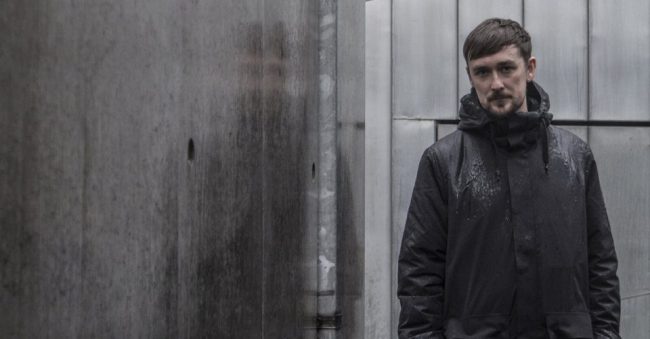
Fot. Yky Art
Swarm Intelligence: The IPCC just delivered its latest report with its starkest warning yet. They even haven’t been able to keep up with how bad the situation is progressing as everything needs time to be peer-reviewed. In other words, it’s probably even worse than they say it is because their report is already out of date. According to them, human activity was “unequivocally” the cause of rapid changes to the climate. One of the biggest challenges humanity faces in tackling this crisis is the opposition from big, powerful companies that rely on fossil fuels and industrialized agriculture for profit. They have a vested interest in “business as usual”, despite the humanitarian cost. They pour money into lobbying governments and enact disinformation campaigns to undermine society’s ability to act. Thankfully of late, it seems as though many governments and businesses are waking up to the gravity of the situation and are acting, but they need to do more and do it more quickly. It seems a lot of humanity’s future is pinned on the upcoming Cop26 summit and the actions our governments take.
Some people seem to think we can engineer our way out of this. Technology will perhaps play a role in mitigating or delaying some of the effects of climate change, but it is highly unlikely that it will be enough on its own. As for the idea of abandoning Earth for Mars… Sure, that makes for a nice sci-fi yarn, but who in their right mind would freely choose to forgo the beauty of our planet to live on a desolate, inhospitable hunk of rock that died millions of years ago? I am not sure if we have reached a point of no return yet. I am an optimist by nature, so I believe that we still have a chance to make a positive impact. But this is provided that we all step up and take some responsibility. The single most impactful thing any of us can do as individuals to reduce our carbon footprint is to switch to a vegan diet. The benefit is far greater than buying an electric car or flying less. The climate emergency is one of the reasons I went vegan (love of animals was the other reason).
Aside from this, using public transport, walking or cycling instead of driving, cutting back on air travel, reducing plastic waste, recycling as much as possible, switching to green energy, protesting and using your vote to make your voice heard, using your power as a consumer to push brands to be more sustainable, donating to societies working to prevent climate change – there is much each of us can do. And if the signs are to be taken seriously, we all need to do as much as we can, right now.
You studied information technology and you keep saying that you are learning, that you want to be better. If you hadn’t studied the way you did, would you be musically in the same place you are now?
Swarm Intelligence: Wow, that’s a tough question! I really don’t know to be honest. I think the experiences I have had throughout my life shaped who I am today. This goes for my person, as well as my music. I sometimes wonder what would have happened if I had taken all the energy that it took me to get through an engineering degree and put it into my music instead. I don’t have any regrets though. Getting through that degree was brutal in a way that was character-building. Studying engineering also gave me a new lens through to view the world through. I found that my brain would naturally start dissecting things, imagining the functional building blocks of a certain piece of electronics. This is also how I would later approach music. So, I think that at least my approach to music would be very different today.
Obscuur Label – Diasiva (LIVE)
Swarm Intelligence. Inspiration and technology
What problems have you had to contend with during your career?
Swarm Intelligence: I could list some horrible technical problems I’ve had, like machines dying on stage in the middle of a gig, or a hard drive getting irrecoverably damaged with the only copies of a year’s worth of studio productions, but honestly – I think the main problems I have had throughout my career have been those that came from within. For as long as I can remember, I have been pushing myself to be the best I possibly can be at whatever I do, even if this comes at a cost to my health and happiness. I would push myself to breaking point and beyond over and over again. I even did this for things I didn’t enjoy or real value.
When it came to music, I would compare myself to artists who were more popular than I was, wondering what it was that I was doing wrong. I’d also compare my tracks to other people’s and only hear all the problems with mine. Everything was about what I was doing wrong, and how I needed to get better. I never stopped to appreciate what I was doing right, what was actually good about my music.
At some point, I realized that, for someone who apparently wasn’t ‘good enough’, I had actually gained quite a following. I was playing more and more gigs and traveling quite a bit. I could definitely feel the excitement and energy from the floor when I played, and I realized that quite a lot of people liked and supported my releases. I met people who told me that my music had inspired them… Bit by bit, I started to gain confidence and belief in what I was doing. Today, I am trying to take a step back and allow myself to appreciate what it is that I have achieved with my sound and my career in general. It’s hard work trying to calm these overly self-critical, competitive tendencies that I have, but I’m slowly getting there!
You say that you never want to be defined by one genre. It is somewhat confirmed by your second project, Diasiva, co-created with Monologue. It can be seen that even the most broken sounds are not afraid of you, and arrangements created from them – which you confirmed – reflect your inner state of personality and external exploration. How does all this relate not to Swarm Intelligence but to Simon Hayes? When you’re not in the studio, you’re not performing. What and how strongly are you influenced by other things – non-musical – in your everyday life?
Swarm Intelligence: Most of my music is written against the imagined backdrop of a noir, dystopian near-future. I am heavily influenced by science fiction and I enjoy reading books and watching movies and TV series. Lately, I’ve just re-read William Gibson’s Sprawl trilogy and I’m currently watching Ridley Scott’s Raised by Wolves. Today’s news is often a stark reminder of how close these fictional worlds are coming to our reality. From the recent NSO Group scandal to the use of facial recognition by authoritarian governments, from mass disinformation campaigns and deep fakes to the current use of autonomous weapons – technology is being used in an increasingly abhorrent way by governments, big business, and our society at large. My music draws a lot of thematic inspiration from technological advancements, and the risk they could pose to a corruptible society.
Aside from technology and science fiction, I also draw inspiration from architecture, especially brutalism. In some ways. it’s hard not to be influenced by this as it is quite commonplace in Berlin’s cityscape, especially around where I live. I am also inspired by abandoned industrial spaces and enjoy exploring them, often with a microphone in hand. These environments are the natural habitat of my music – desolate and cavernous with plenty of menaces! I like contemporary art too. I especially like installations that bring together sound, light, video, and robotics. I recently attended Christopher Bauder’s Dark Matter exhibition in Berlin. It was stunning and I left feeling full of new ideas. I’m looking forward to visiting Jakob Kudsk Steensen’s Berl-Berl exhibition next week.
Swarm Intelligence – Locust
Swarm Intelligence. The direction in line with the vision
I know a lot of artists who, when they’re not producing, don’t listen to electronics at all. It allows them to gain freshness, breath, even further inspiration. And how is it with you? Where do you escape to musically in your moments of rest?
Swarm Intelligence: I’m definitely the opposite. I mostly listen to electronic music, from ambient and noise, right through to breakcore. I listen to techno a lot, probably every day. I also enjoy modern classical music, post-rock, as well as some of the weirder side of pop. After a few (too many) drinks, I have also been known to get on YouTube and enthusiastically blast out chart-toppers from the past.
You have released with many influential artists – Earwiggle with Sunil Sharpe or 47 with Tommy Four Seven. You mention that they both steered you in the right direction, which made you go a bit beyond your sound. You seem to be a mega perfectionist in what you do. Doesn’t it annoy you a little bit that you are not able to prepare ready-made material right away but you are still directed to this „right way”? Are you still looking for „that something”?
Swarm Intelligence: I like to challenge myself creatively when approaching each new EP. One of the hardest things for me to write is a four-to-the-floor banger. I naturally default to broken beats and I really struggle with a straight kick pattern. Both Tommy and Sunil helped guide me a lot to mold my sound to the framework of this kind of track. I think Tommy in particular took a lot of time to support me in getting the more dancefloor-focussed tracks for 47 right. Yes, of course, this was frustrating at times, not because I felt anyone was interfering with my musical vision or anything like that. It was more because it was pushing me out of my comfort zone and it was hard work to get it right. The feedback was high-level enough that I could interpret it in a way that was my own. Stuff like “there’s more impact needed at the drop”, or “this section is missing a hook”.
Listening back to the original demos I sent compared to the finished versions, I have no doubt that the tracks grew stronger because of it, but there was quite a bit of sweat and heartache needed to get there – For example, I have over a hundred versions of ‘Murmur’ and it’ll be some time before I can listen to that one again! There have been other times where labels have tried to push me towards a direction that felt incompatible with my vision. In those cases, I stood my ground. I’d rather not put out a release, than release something that wasn’t true to myself.
In a March talk from earlier this year, you mentioned that you’re now getting to a point where you’re approaching the identity you feel as Swarm Intelligence and it might be time to create your own platform. Do you already have the first outlines of 'something of your own’, initial plans, an idea, have you spoken to anyone about it?
Swarm Intelligence: Yes, that’s right. I have been contemplating setting up my own imprint for quite some time now and I decided to finally go for it this year. I wanted to take full control of the release, from the sound right through to the artwork and merch. The first EP is done and has been mastered. It’s now at the pressing plant. I’m expecting test pressings to arrive in the post any day now. It will drop this Autumn (assuming there are no manufacturing delays). It will be a very limited run and I don’t plan to do a repress.






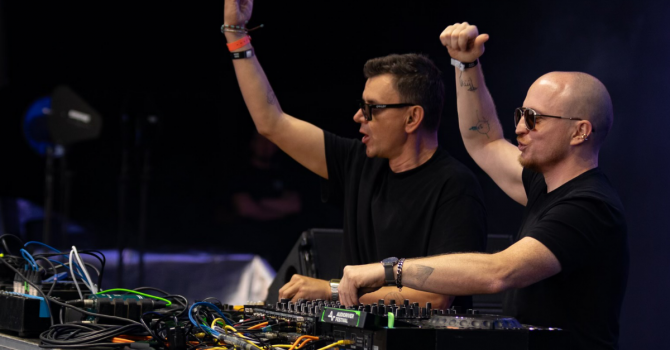

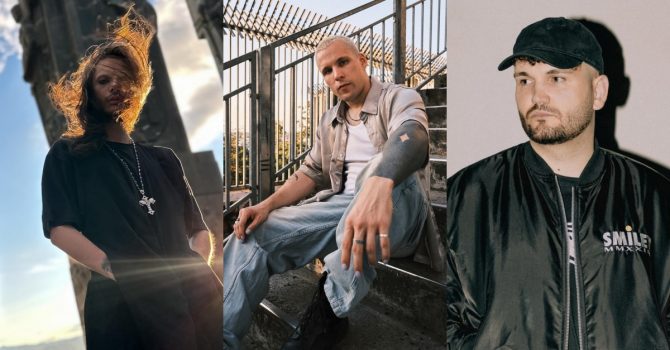
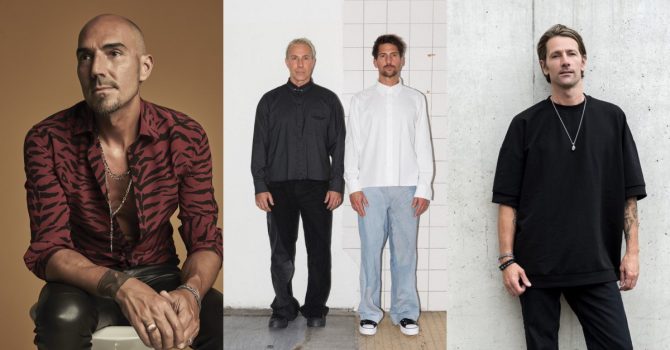
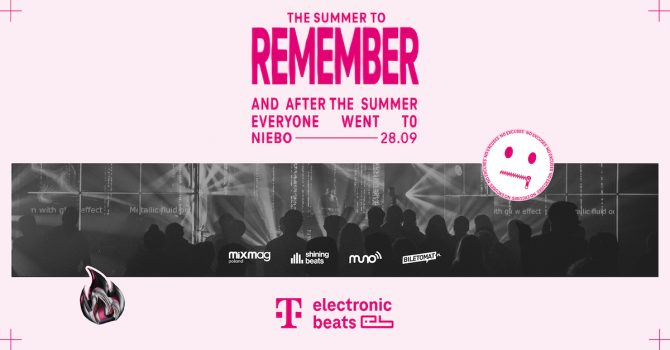
![Dax J: „We are in the final years of human-produced music” [interview]](https://muno.pl/wp-content/uploads/2023/06/dax-j-fin-670x350.jpg)
![„Electronic archaeologist” – The Allegorist [interview]](https://muno.pl/wp-content/uploads/2023/05/allegorist-670x350.jpg)
![Nico Plagemann [Kollektiv Turmstrasse]: Poland has never disappointed me! – interview](https://muno.pl/wp-content/uploads/2021/04/179500072_10159142620723416_2852799361964948505_n-670x350.jpg)
